Mike Royko 50 Years Ago Today: Mike sees an offer Denny McLain should refuse
Weekly Compilation June 12-18, 1972
To access all site contents, click on the rose icon in the upper left corner or HERE.
Why do we run this separate item, Mike Royko 50 Years Ago Today? Because Steve Bertolucci, the hero of the serialized novel central to this Substack, “Roseland, Chicago: 1972,” lived in a Daily News household. The Bertoluccis subscribed to the Daily News, and back then everybody read the paper, even kids. And if you read the Daily News, you read Mike Royko. Get your Royko fix on Twitter too— @RoselandChi1972.
June 12, 1972
Another fun installment in Mike’s occasional “Letters, calls, complaints and great thoughts from readers”.
From today’s crop of readers, let’s go with Division Street Wally, who gives us a great little history lesson on the Chicago police department along with an astute observation at the end of his letter.
First, some background:
Police Supt. Orlando Wilson was hired from outside Chicago by Mayor Daley in 1960 to clean up the department in the wake of the monster Summerdale scandal, in which eight cops supplemented their salaries by operating as a burglary ring. (Listen to Chicago History Podcast Episode #402 for a great rundown on that one.) Back on May 6-7, the Daily News’ Edmund J. Rooney wrote an article headlined “Police slump since Wilson?”
By the time Wilson retired in 1967, just five years ago in our timeline, he’d transformed the police department “into what was probably the nation’s finest big city force,” wrote Rooney. “What has happened to the Police Department since Wilson retired? And why has it happened?”
Rooney’s article was prompted because of the current campaign led by U.S. Rep. Ralph Metcalfe to force Mayor Daley to address police brutality in Black neighborhoods, and because there are several ongoing federal investigations of Chicago police—which have brought 12 indictments so far of currently serving cops. See May 24 “Metcalfe: Daley must meet our deadline” and June 1, “Metcalfe: Mayor Daley is not God” for background on Metcalfe’s crusade.
Still, at the May 11 annual police recognition ceremony , Mayor Daley pounded the lectern at Arie Crown Theater while saying things like, “We are proud of our police department” and “we have the finest of any in the world.”
There are constant rumors that Mayor Daley is about to fire current Police Supt. James Conlisk. Conlisk is just finishing up a series of community meetings where he shows up in a police district to answer audience questions, and on a good night, everybody just yells at him.
On Monday this week the first indicted cop in the current scandals went on trial. Patrolman Walter Moore is part of an investigation into Austin District cops allegedly extorting pay-offs from businesses, especially bars.
Herman Gholston, who owned Chez Herman at 5320 W. Madison, testified that Officer Moore arrested him in 1971 for not displaying a state license on his cigarette vending machine, then came back the next day and asked for $50/month for protection. That’s $337.50 in 2022 money. Gholston said he told Moore, ‘If you want a raise, you’d better ask Mayor Daley.’”
Now, on to the letter:
“Division Street Wally: I used to know a lot of the old-time cops in Chicago. The ones I knew always made something extra by putting the arm on saloon keepers.
“Then Orlando Wilson came in and modernized the police department. He put up new police stations, got better equipment and higher salaries for the men.
“He set up a fine police academy and recruited men who had been to college. He even encouraged policemen to go on with their education in their spare time.
“He did all these things to attract a smarter, higher-class guy for police work.
“So what has happened? After all the advantages the modern policeman has had, he still shakes down saloon keepers.
“This doesn’t say much for his ambitions or the value of formal education. You would think that by now, he would be able to shake down a higher class of businessman.”
“COMMENT: Yes, but what would that leave for the aldermen?”
June 13, 1972
Adler & Sullivan’s justifiably world-famous Auditorium Theater, built in 1889, was almost closed and turned into a parking lot a few years earlier. Considering the other architectural masterpieces that have bitten the dust in Chicago the last few years—Adler & Sullivan’s Old Stock Exchange Building recently lost its last appeal and is nearly demolished on this date—it is truly miraculous that the Auditorium was instead restored and re-opened. (See the Daily News’ M.W. Newman and Richard Christiansen on the Old Stock Exchange debacle on Oct. 23, 1971.)
“Now the question is: Can it survive today’s teen-aged rock fan?” Mike asks.
“Since rock groups began performing there about two years ago, the audiences have committed more than $50,000 in vandalism.
“They have ripped, kicked, bent, burned, slashed, smeared, chipped, torn and twisted at the magnificent interior.”
Mike doesn’t name names, but rock bands that performed at the Auditorium in the two months prior to this column include Pink Floyd, Dave Mason, Country Joe MacDonald, and Hot Tuna. The Daily News didn’t report any stories on Auditorium vandalism in that time period that I can find in its digital archives, and the concert reviews don’t mention anything about audience behavior. Ditto for the Tribune archives.
However, I can’t help but mention that Jack Hafferkamp’s review of Pink Floyd at the Auditorium on April 28 says that “The four Floyds wield typical rock equipment—guitar (David Gilmore), bass (Roger Waters), drums (Nicky Mason) and keyboards (Rick Wright)—but that’s where the similarity to typical rock bands ends.”
The show used “a sophisticated quadraphonic sound system (including pre-recorded tapes of chill winds, Biblical readings and insane giggling played through speakers on stage and at the sides and rear of the hall) and a light show that incorporates the house lights, an onstage stand that moves up and down throwing off alternating green, red and blue spotlights, three revolving red ambulance lights and strategically ignited flame pots….In short, Pink Floyd performs an awesome spectacle.”
But we digress. It must have been amazing to see Pink Floyd at the Auditorium, but back to the Auditorium itself.
Mike spends some time with Monte Fassnacht, the Auditorium’s managing director, “a white-haired, fatherly man” who “finds himself almost marveling at the many forms of vandalism thought up by today’s young slobs.”
It is painful to follow Mr. Fassnacht’s tour with Mike through the destruction.
The velvet benches outside the restrooms: “They poured lighter fluid on one and set it afire.”
The big full-length mirror topped by light bulbs also outside the restroom: “They like to take knives and run along the mirror, smashing all the bulbs.”
The luxurious box seats: “They slash the chairs with knives, tear the legs off, or both.”
“‘Most of them,’ he says, ‘are from the suburbs, the North Shore. And how they know their rights. If you catch them at something, they start screaming: ‘I know my rights. My parents will sue you.’”
“If they need a place for rock concerts, why not the stockyards?” Mike concludes. “That, too, is a famous landmark that is no longer in use. A rock concert would instantly restore it to its original glory, when it housed more pigs than any pen on Earth.”
Here’s a live Pink Floyd performance of “Dark Side of the Moon” from 1972-73, so this might be similar to the Auditorium show. According to the Daily News’ Hafferkamp, the entire first half of the Chicago show was “Eclipse,” which doesn’t really make sense, but it does suggest they were performing from “Dark Side of the Moon”:
If you dig Mike Royko, you’ll want to see the news he’s writing about. Check it out here!
June 14, 1972
“Denny McLain, the famous baseball pitcher, has never been accused of being too smart,” writes Mike today.
Steve was sitting nearby, so as soon as I read that first sentence, I asked him, “Hey, have you ever heard of Denny McLain?”
He snorted. “Yyyyeahhhhh,” he said in a disbelieving whinny. “He went to my high school.”
As it turns out, Denny McLain was born in 1944 in south suburban Markham, and went to Mt. Carmel High School in Woodlawn. He was just a tad older than Steve’s oldest brother, so none of the Bertolucci’s knew him.
“He won 31 games in a season, which is incredible,” Steve told me immediately, right off the top of his head. “It used to be more common when pitchers threw constantly, like Cy Young. But in modern baseball, to win over 30 games? Denny McLain won 31 games in 1968. If you go before that, you have to go to Dizzy Dean in the 1930s. So it was unheard of when Denny McLain won 31 games in 1968. He had like two good years, and then he fell apart.”
Checking Steve’s memory, I saw that McLain was also the last pitcher to win over 30 games, and only 11 other pitchers managed that feat in the 20th century. As for Dizzy Dean, he finished the 1934 season 30-7. Here’s a background article on McLain from the National Baseball Hall of Fame website, “McLain’s 30th Thrilled the World.”
So there’s your Denny McLain background. He played for the Detroit Tigers in his heyday.
“Right after becoming the biggest pitching star in the game, he got himself suspended for gambling and associating with underworld types,” Mike sums it up. “Then he managed to drive himself deeply into debt, while earning huge sums for so young a man.”
McLain was the first Tiger player to earn $100,000, which is $675,000 in 2022 money. That doesn’t sound like much compared to today’s baseball salaries, but back then—wow. Plus, there were endorsements (Pepsi), personal appearances, and McLain played an organ in a quintet that appeared on The Ed Sullivan Show and toured. Unfortunately, his many income sources all went to gambling.
In 1972, still just 27, McLain is broke and back down in the minor leagues hoping to make a comeback. Mike catches sight of McLain’s name at the bottom of a routine feature story while his team was playing in Savannah, Georgia.
In that article, Mike notices another name, a name he knows well: Louis Rosanova, executive director of the Savannah Inn and Country Club—where he’s treating McLain to a luxury suite and gourmet meals.
This is the offer that Mike thinks McLain should refuse.
Mike knows Louis Rosanova as Lou “The Tailor” Rosanova.
Rosanova worked for and hung out with the biggest of big-timers in the Chicago Outfit, including Tony “Big Tuna” Accardo and Accardo associate Jackie Cerone.
Accardo was the Chicago underboss by the early 1940s, serving Paul “The Waiter” Ricca. Accardo became boss when Ricca went to prison. After 1957, per Wikipedia, Accardo stepped back while Sam Giancana and then Joey Aiuppa were acting boss, but Accardo (with Ricca until his death) was still ultimately in power. In 1972, Accardo is very much alive and in charge. Mike notes that Lou Rosanova was “making vacation trips to Miami with Accardo” by the early ‘60s.
To give you a brief but potent idea of Jackie Cerone, his 1996 Tribune obituary by John O’Brien notes that he died just six days after getting out of prison, having served 10 1/2 years.
“The crimes for which he and others went to prison formed the basis of ‘Casino,’ a book and movie about the mob's takeover of a Las Vegas casino and the skimming of $2 million in profits, before taxes,” wrote O’Brien.
In 2021, a criminal defense lawyer floated the idea that Jimmy Hoffa was buried at a particular hole on Savannah Inn’s golf course, a convenient spot where they could keep an eye on Hoffa but nobody would think to look. The lawyer said he saw Lou Rosanova urinate at that particular hole one day, and asked somebody about it.
"That's when he told me, he said, 'I never had this conversation with you, but you are looking where Jimmy Hoffa is buried.'" This is why when you try to find a picture of Lou Rosanova, all you get is pictures of Jimmy Hoffa.
Mike notes that in 1966, Lou Rosanova was manager of Riverwoods Country Club near Deerfield. Why?
“Many of Chicago’s top gangsters enjoy golf, but they have trouble finding private clubs that will accept them as members,” Mike explains. “Over the years, they have found that a simple solution was to take over a club, which is what they apparently had done at Riverwoods….However, the Riverwoods phase ended when I wrote about the Syndicate’s presence, which drove off the respectable members, and forced the Syndicate to sell it.”
That’s why Lou Rosanova “drifted away from Chicago,” writes Mike, but that doesn’t mean he’s reformed. Rosanova was indicted earlier in 1972 with several prominent Chicago gangsters in a mortgage fee scheme.
“I have to assume that McLain didn’t know who Rosanova was,” writes Mike. “The wire story said he was steered to Rosanova’s resort by Ken (Hawk) Harrelson, the former major league star, who is now a professional golfer in Savannah.
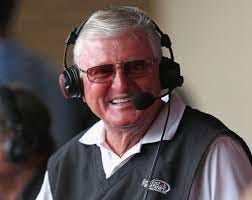
“But after what he has already been through, McLain really should think twice when a big, burly, nice, generous, friendly stranger starts shoving gourmet food and $75 rooms at him,” Mike concludes. “Even little kids know better than to accept candy from strangers.”
Unfortunately, Denny McLain didn’t listen to Mike Royko. He manages to get back into the majors later in 1972, but per Wikipedia his last major league game will be September 12, and he’ll finish the season 4-7 with a 6.37 ERA. The rest of his Wikipedia entry is rather a nightmare, though in between jail stints he played the organ, hosted radio shows, and now apparently does a podcast.
June 15, 1972
Today, Mike gives us a true-crime story with a happy ending that is also quite depressing.
Rena Friedman and her boyfriend, Bob Donofrio, walked over to a crowded Oak Street beach on a beautiful summer night. They sat and talked, dangling their feet in the water, and lost track of time. When they finally noticed that everyone else had left as the hour grew late, they also noticed two men walking toward them very slowly.
Sure enough, the two men were muggers. They demanded money, and Rena Friedman’s jewelry. The couple stood up, and that’s when Bob Donofrio created a diversion so Rena Friedman could run away. He started yelling obscene names at the two muggers. Friedman ran, with one mugger in pursuit.
“Miss Friedman, 24, runs well and screams loud,” writes Mike. “When she got to the drive she darted into traffic, causing several cars to slam on their brakes and prompting her pursuer to turn around.”
Donofrio “grew up in a tough neighborhood” and held his own even against both muggers. Meanwhile, “Miss Friedman’s screams caused several cars to stop. People got out to see what was happening, and their presence made the muggers back off.”
“But Miss Friedman didn’t know that. For all she knew, her boyfriend was being killed.”
Friedman made it across the eight lanes of Lake Shore Drive and ran into the lobby of 1212 N. Lake Shore Drive, because she could see a doorman and another employee inside watching her.
“She rushed into the lobby and they stared at her. She was sobbing, her mascara running down her face, and she cried:
“‘Call the police. Somebody may be getting killed across the street.’
“The doorman looked at her for a moment. Then he said:
“‘Do you have a dime?’
“I will pause here to let you think about that.”
Younger Readers: In 1972 it cost ten cents to make a local phone call from a payphone, for which you typically used a dime.
On April 24, Chicago Today printed a story from a series about loafing workers at O’Hare Airport, where the reporters surreptitiously followed people around and saw how they spent their time. Besides pretending to work, some workers “looked for abandoned change in payphones.”
Future Readers: A payphone was a device installed in a public place which allowed you to communicate with others, as you may do now with a computer chip in your head. In order to make the payphone work, you had to insert payment with physical money, in coins. And as I noted on May 24, Future Readers, if you should come to the 20th century accidentally in a malfunctioning time machine, checking payphones for abandoned change is a great way to find money to get you started in surviving that harsh world. Look in the silver opening in the lower lefthand of the front of the payphone.
Back to the column.
Friedman screamed at the two employees, “For God’s sake no. Somebody may be getting killed, call the police.”
Mike doesn’t say it, but it’s hard to believe the doorman didn’t have a regular phone at his disposal right there in the lobby, even if there was also a payphone.
The two guys were still looking at each other when Friedman gave up and ran back outside to find actual help. Coincidentally, at that moment, an unmarked detective car stopped on Lake Shore Drive and scared off the muggers.
Bob Donofrio was OK, and the detectives gave the couple a ride. The two guys from 1212 N. Lake Shore Drive were standing around outside craning their necks.
Maybe, Mike concludes, “they were looking for somebody who had change for a quarter.”
Read the full column in “Slats Grobnik and Some Other Friends.”
Don’t you wish we knew if Bob Donofrio and Rena Friedman stayed together and told that story to their kids and grandkids?
And if somebody in charge at 1212 N. Lake Shore Drive fired those two schmucks? Because everybody read Mike Royko, so there’s no way the whole building didn’t know about this travesty by dinnertime today.
UPDATE: Indefatigable reader Bernie Cicirello took the initiative and found the answer: “Apparently, Bob and Rena did get married and had a daughter,” he writes, with this attachment from the Tribune on January 13, 1978 (it also ran in the Daily News):
Thanks, Bernie!
June 16, 1972
“The City Council paid a great tribute to the late Saul Alinsky a few days ago. It refused to name a city park after him.
“An independent alderman had suggested that one of the many unnamed little parks in Chicago be called Alinsky Park, and equipped with a soapbox because of Alinsky’s devotion to free speech.
“The other aldermen, who also believe in free speech, except when the mayor tells them to shut up, didn’t like the idea.
“Alinsky would have been pleased. Their reaction meant they are still aching from the many kicks he gave them. It meant they remember who formed the toughest, most effective community organizations in Chicago. Alinsky’s most recent creation—the Citizens Action Committee (CAP)—gave Assessor Parky Cullerton heartburn, and now it is leading the fight against the Crosstown Expressway.”
Re CAP and the Crosstown: CAP’s Crosstown activities kicked off in terms of media attention on May 28, with coverage of CAP members packing a public meeting on the project. Jay McMullen reported a confrontation between Mayor Daley and CAP co-chairman Father Leonard Dubi over taxes on April 3. Chicago Today’s Michael Hirsley described another CAP Crosstown protest on April 24 where U.S. Rep. Roman Pucinski threatened to punch Father Dubi, who was all for getting it on. See two May 22 accounts of a massive CAP anti-Crosstown march.
This all gets Mike thinking about who Chicago’s parks are named after. He finds that once you get past presidents plus a few local settlers and Indians, “you find that our politicians are fond of honoring the people they like best—themselves.”
Mike goes through a long list of parks named after petty politicians. One fun example: Meyering Playground, named after alderman and later Sheriff William Meyering.
“Meyering was the guardian of Cook County’s law and order in the days when Al Capone was our most famous citizen,” writes Mike. “Roger Touhy, the gangster, once provided this thumbnail description of Sheriff Meyering, while testifying in federal court.
“‘A fixer,’ Touhy said.”
This column, too, is reprinted in “Slats Grobnik and Some Other Friends.”
Legendary Chicago activist Saul Alinsky, the radical who taught other radicals how to be radicals, died this week at 63. See this week’s THIS CRAZY DAY IN 1972 for Chicago’s farewells to Alinsky, including Chicago Today’s obituary profile and the Daily News’ Lois Wille’s lengthy profile on June 13; the Daily News’ Jay McMullen’s account of the June 14 City Council meeting when Saul Alinsky Park was quashed; and editorials from Chicago Today and the Daily News on June 14.
As we here all know, weekends could be sad for a Daily News family because Mike Royko wasn’t in the Daily News’ single weekend edition. So we look for Mike elsewhere on weekends.
June 17-18, 1972
Like me, you must be dying to read Mike’s columns about the gangster golf course, Riverwoods. So that’s our weekend edition. Mike wrote about Riverwoods first on April 26, 1966, followed by two more columns that year, and a follow-up in 1967. These columns are from Mike’s first years writing on the Daily News op-ed page, before he moved to page 3. The design is slightly different, and it’s a younger picture that may surprise you.
Before going on, let’s recall that Tony Accardo was head of the Chicago Outfit, and Jack Cerone was a close associate who went to federal prison for crimes that, his Tribune obituary noted, “formed the basis of "Casino," a book and movie about the mob's takeover of a Las Vegas casino and the skimming of $2 million in profits, before taxes.”
Mike has already shown us in 1972 that he’s still game to go after Chicago mobsters. On February 25, Mike wrote “Look who’s in Police Court,” going out of his way to confront a washed-up mobster named Louis Tornabene who’s reduced to selling used cars.
In his biography of Royko, “A Life in Print,” Richard Ciccone writes that Royko “Never backed off the mob,” but he worried about it.
“David Royko remembers one incident in 1967 when his father came home and discovered a dark car parked ominously in front of his house.”
Note: This incident, then, happened right after the columns we’ll cover below.
“He parked down the street and got out of the car, closed the door real quiet and went around back to the alley and came up to the back door. I remember my mother saying, ‘Is that your father at the back door?’ when he came bursting in shouting, ‘Carol, Carol, lock the front door.’ We all went to the front door and suddenly there’s this squeaky voice saying, ‘Mike, Mike.’ It was one of my grandparents’ friends who were always around and my father detested this woman. After that night, he despised her. But he was sure it was mobsters who had come to get him.”
In 1977, Royko wrote a series of columns on the trial of mob hitman Harry Aleman. As Ciccone notes, “It was unusual for Royko to focus so much on a story that was being covered on the front pages, but his unerring sense of political chicanery and his courage in repeatedly attacking a known mob killer added to the public interest.”
Without further ado, here are Mike’s first high-profile mob columns.
April 26, 1966
“Congratulations to Riverwoods Country Club. Its four-man team has won the Illinois Professional Golf Assn. pro-am tournament.
“And congratulations to the Chicago branch of the Cosa Nostra. Two of its members were on the winning golf team.
“These fine athletes are Jack (Jackie the Lackey) Cerone, a high-level hood, and Lou (the Tailor) Rosanova, a middle-level hood.”
Cerone, Mike recounts, “used to be Tony Accardo’s driver and all-around handyman. Even then, people said if he ever got anywhere in life, it would probably be with a club in his hand.”
As for Lou Rosanova, “His golf score card showed a 76. His score card at 11th and State shows one federal rap for theft of an interstate shipment, plus several routine pickups to see what he was up to.”
For Younger Readers: The main Chicago police headquarters used to be at 11th and State.
“When told of Rosanova’s victory on the golf course, Capt. William Duffy, the police department’s leading expert on hoodlums, said:
“‘Has anyone gone back and counted the trees? When I knew Lou, he was running with burglars.’”
Mike explains that Cerone, Rosanova and and a few more similar pals used to belong to Tam O’Shanter in Niles, but it closed, so they moved on to Riverwoods. Riverwoods, writes Mike, has 250 members paying $1,100 in dues each year ($7,425 in 2022 money). The club features not one but two golf courses, plus several swimming pools, and all the luxuries that go with such things.
“Qualifications for membership are set by club members,” writes Mike. “Apparently nothing in the background of Cerone and Rosanova disqualifies them. It is a pity Frankenstein’s monster didn’t play the game….
“As far as I know, this is the first PGA-sponsored golf tournament in which victory is shared by the Cosa-Nostra.”
May 18, 1966
“Lou Rosanova, well-known amateur golfer and manager of the Riverwoods Country Club, sounded hurt when he phoned recently.
“‘You called me a hoodlum,’ he said. ‘You shouldn’t have called me a hoodlum because I am not a hoodlum.
“Just because a person happens to play a round of golf with someone who has a reputation for, uh, well, for something, that doesn’t make him a hoodlum, does it?
“So I think you owe me an apology. You were 100 per-cent wrong and you ought to say so.’”
OK, says Mike—if he’s not a hoodlum, he deserves an apology. Now we get a long list of the ways in which Lou Rosanova is not a hoodlum, such as:
“He was not a hoodlum in November of 1964 when he and Tony Accardo and [Jack] Cerone traveled together on a plane from Chicago to Miami. Their reservations were made out in the name of Riverwoods Country Club and were handled by a travel agency that caters almost exclusively to crime syndicate members.”
“And in his younger pre-country club days, he was not a hoodlum when he hung out on the West Side with burglars, fur thieves and other crooks.”
“Even a Justice Department report that listed him as being a member of the Chicago-area Cost Nostra, also an exclusive club, doesn’t make him a hoodlum.”
It’s clear that Lou Rosanova is not a hoodlum, Mike concludes.
“It is simply his fate that everywhere he goes, hoodlums seem to be nearby.”
August 15, 1966
“A few hundred policemen from Chicago and suburban forces tee off today at their annual golf outing,” writes Mike.
“Riverwoods is not like the public courses policemen usually play. The difference, simply, is like the difference between a Cadillac and my car.”
Mike describes the luscious Riverwoods golf course, and how unusual it is for somebody with a cop’s salary to play there. Then Mike notes some of the members who can afford to play there, like Jack Cerone and Lou Rosanova.
“Even Tony Accardo has been there—but only for social activities. Accardo doesn’t swing a club—at least in golf.”
“Not all policeman who belong to the north Cook County and Lake County branch of the IPA will be at the outing,” Mike notes.
“A top Cook County police chief won’t be there. He fired off a letter to the IPA state headquarters, bawling them out for playing at Riverwoods.
“He suggested that a course that is managed by Rosanova and receptive to Cerone is not a place policemen should be—unless they are chasing someone.”
Lake Forest cop Fred Erickson, president of the North Shore IPA division, booked Riverwoods for the police golf outing. Erickson tells Mike he sees nothing wrong with it: “We needed a club that could handle a large turnout. They have two courses and gave us a good price so it seemed like a good deal.”
“Anyway, men, have a good time out there today,” Mike concludes.
“And remember—you yell ‘Fore.’ Not ‘Halt.’”
May 10, 1967
“Here are a few exciting social notes:
“Jack Cerone, prominent gangster, is no longer a member of the Riverwoods Country Club.
“Lou Rosanova, well-known coat-holder and flunky, is no longer president of the Riverwoods Country Club.
“And Riverwoods Country Club is no longer Riverwoods Country Club.”
A group of businessmen have bought Riverwoods for $2,700,000 ($18 million in 2022 money), and they fervently want Mike Royko to broadcast these social notes. They’re not having an easy time finding people to buy memberships, because they all “say things like ‘Riverwoods? Isn’t that where the gangsters play?’”
It seems that after Mike’s earlier columns, “many Riverwoods members were so shocked that they quit their club,” he writes.
“Actually, they weren’t shocked to discover that Cerone and Rosanova were members. They knew that all the time.
“But they were shocked that their friends and business associates now knew. And that, in country club society, is what really counts.”
The new owners are looking for 200 members to pay a $5,000 entrance fee ($34,000 in 2022 money) and $100 per month. They pledge that a committee will screen new members.
“I wish them luck,” writes Mike, “but I’m not sure if it is possible to find 200 people who have piled up $5,000 for a golf club membership while still being honest, good and true.
“But at least they will guarantee that there are no gangsters holding membership, which is more than the Legislature, a few police departments and the Sanitary District has been able to say.”
Riverwoods, by the way, became today’s Ravinia Green Country Club. The above pictures are all of Ravinia Green.
The “Our Story” section of Ravinia Green’s website does not mention Lou Rosanova or Jack Cerone, much less Tony Accardo. Ironically, however, they should. In this post-”Sopranos” time, it would be a tremendous selling point now.
By the way, this feature is no substitute for reading Mike’s full columns. He’s best appreciated in the clear, concise, unbroken original version. Mike already trimmed the verbal fat, so he doesn’t need to be summarized Reader’s Digest-style, either. Our purpose here is to give you some good quotes from the original columns, plus the historic and pop culture context that Mike’s original readers brought to his work. You can’t get the inside jokes if you don’t know the references. Plus, many iconic columns didn’t make it into the collections, so unless you dive into microfilm, there’s riveting work covered here you will never read elsewhere.
If you don’t own any of Mike’s books, maybe start with “One More Time,” a selection covering Mike’s entire career which includes a foreword by Studs Terkel and commentaries by Lois Wille.
Do you dig spending some time in 1972? If you came to MIKE ROYKO 50 YEARS AGO TODAY from social media, you may not know it’s part of the book being serialized here, one chapter per month: “Roseland, Chicago: 1972.” It’s the story of Steve Bertolucci, 10-year-old Roselander in 1972, and what becomes of him. Check it out here.
To get MIKE ROYKO 50 YEARS AGO TODAY in your mailbox weekly along with THIS CRAZY DAY IN 1972 and new chapters of the book—
SUBSCRIBE FOR FREE!

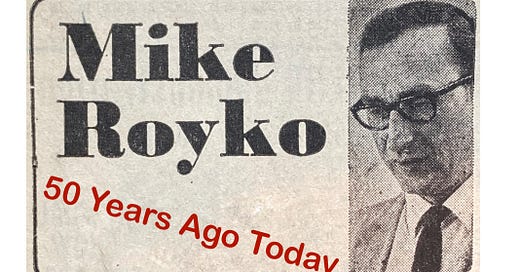


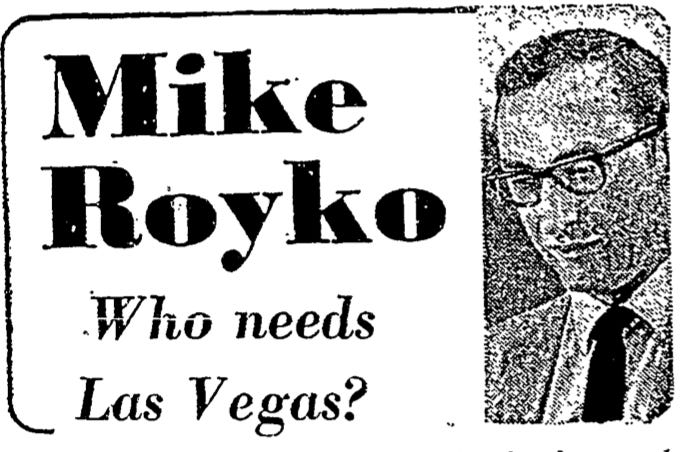
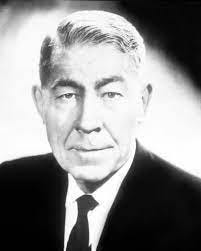
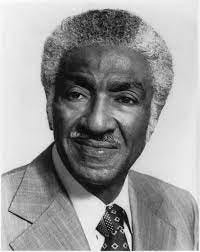
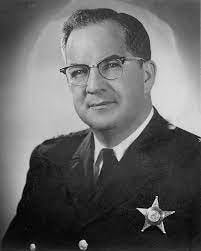
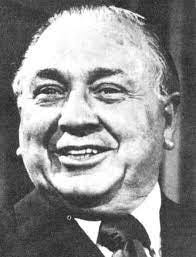

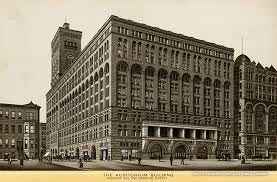
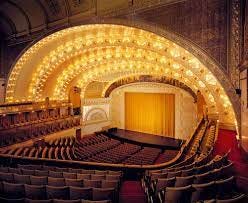
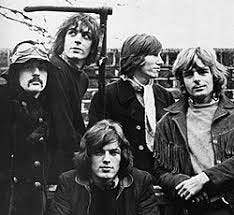


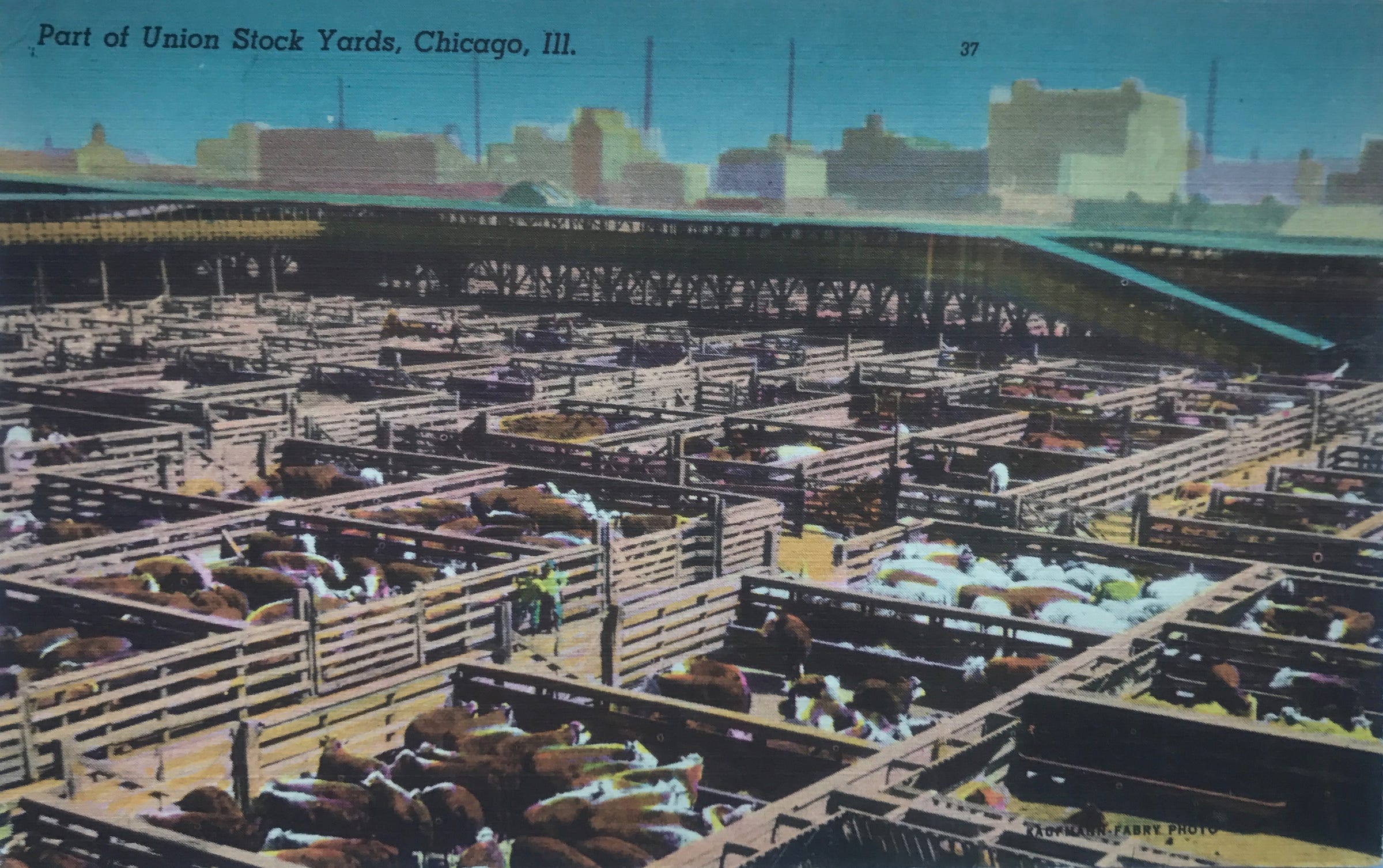
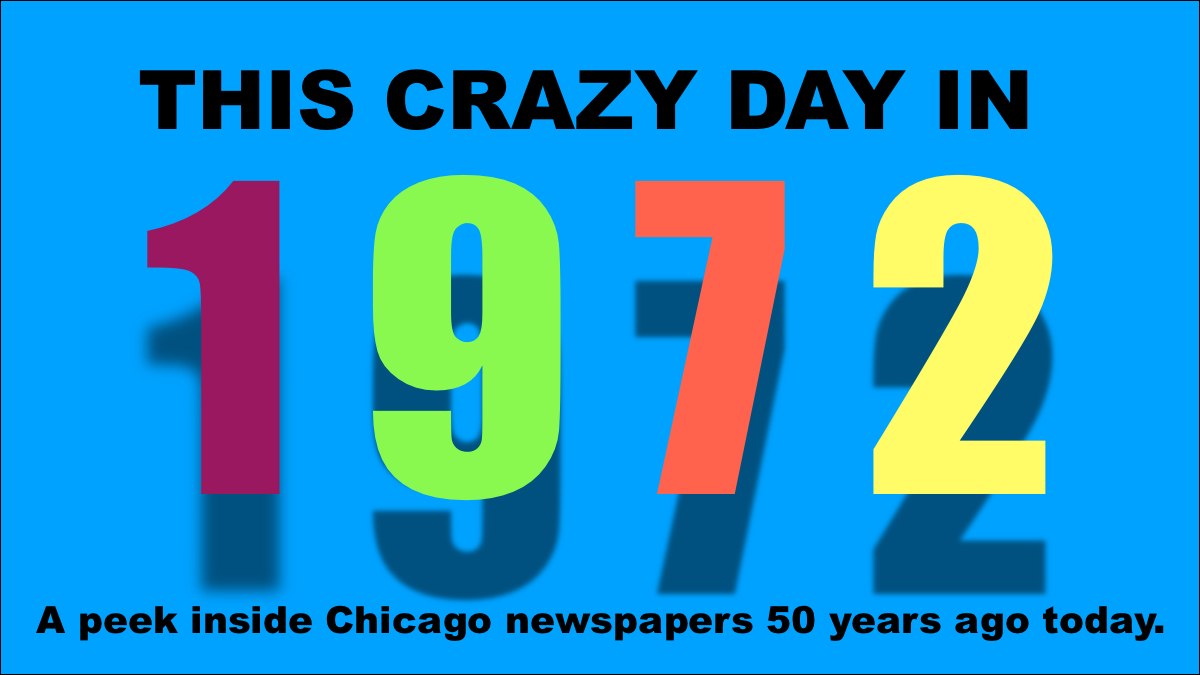

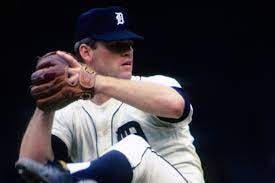
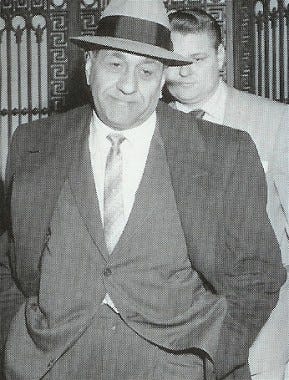
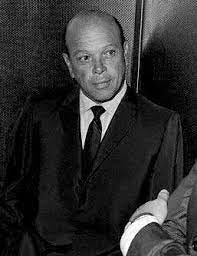
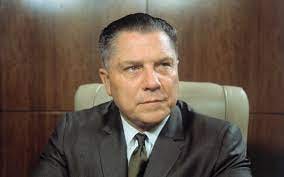



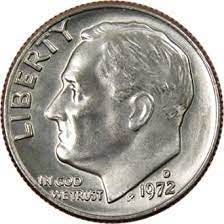

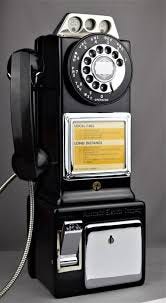





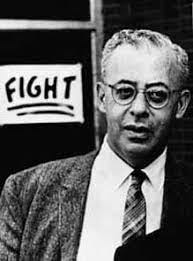
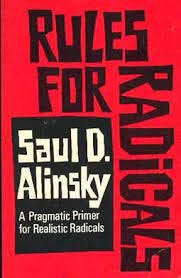
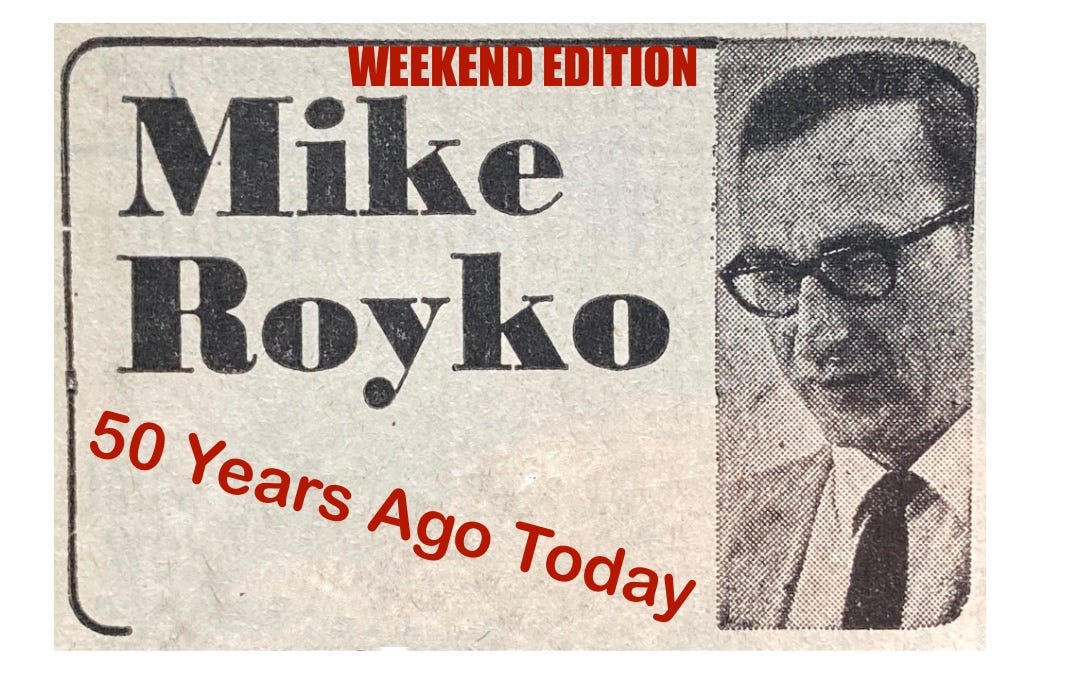
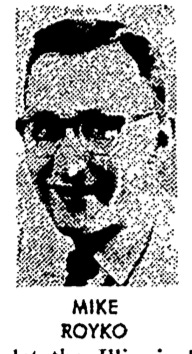
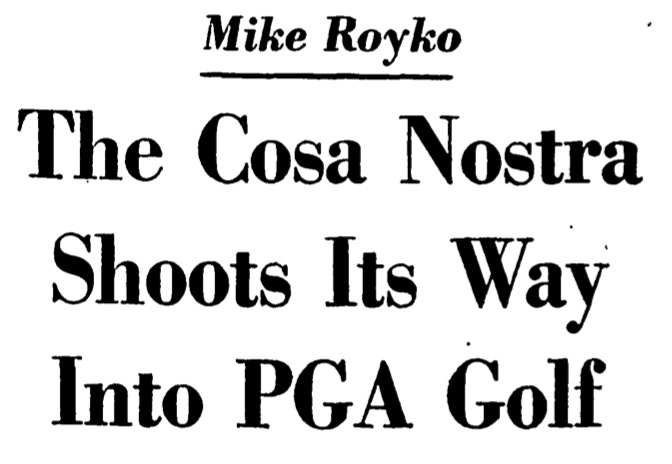

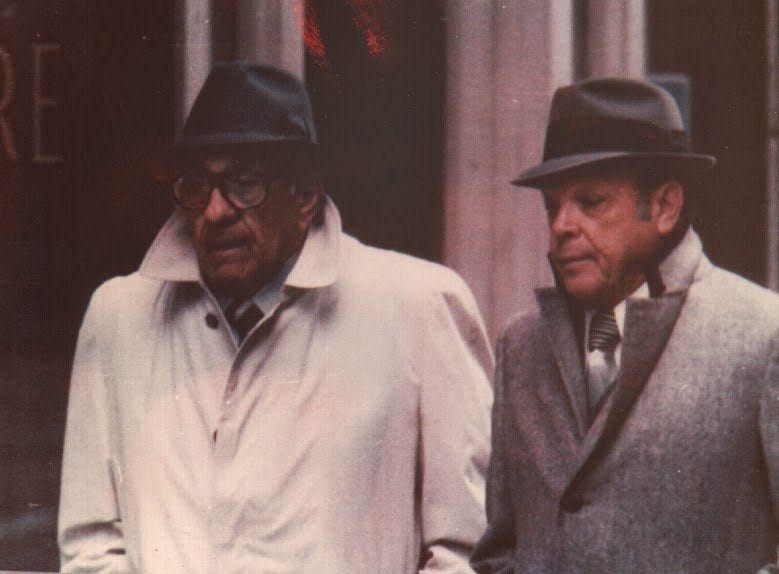
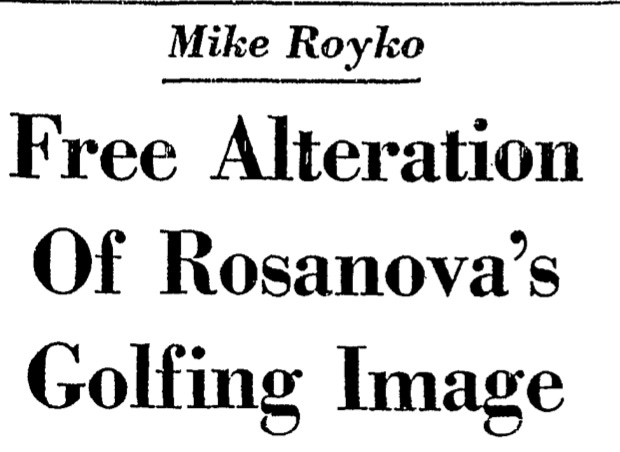
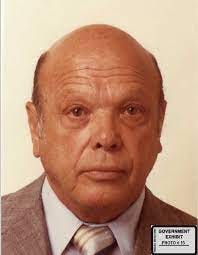



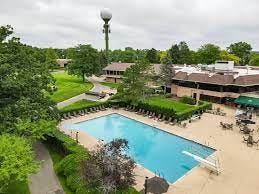



I just saw that someone answered your question, she is on facebook, I am not, but I did see this. https://radaris.com/p/Rena/Donofrio/. Just another tidbit for you, Denny McClain married another south suburban, Lou Boudreau's daughter. Lastly your comment about checking pay phone slots, which I think most kids did back in the day. I used to play an early version of a legal slot machine, we would go to the laundromat at a 144th and Indiana with a dollar bill and keep trying to make change that added up to more than a dollar, rare, but it did happen. Of course sometimes you go ripped off and lost money.